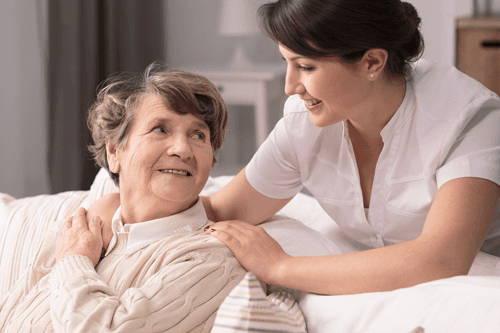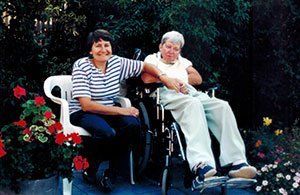Peace Begins at Home
By Barbara McDowall of www.AuthenticLives.com
Just back from almost 2 weeks in my favourite part of the country, kind of my spiritual home away from home – Canada’s east coast and PEI in particular. When I spend any time along our Atlantic seaboard (Nova Scotia in particular), I invariably find myself asking “How can I live and work here”? And I feel I am getting closer to having an answer to that question.
Along the way to PEI, I happened to notice one of the ubiquitous roadside signs. This one said PEACE BEGINS AT HOME. It got me thinking about what that meant to me. Personally, I had to ask myself how peaceful was I within myself (my home), so to speak? Based on my level of personal peace, what was the impact of me being peaceful on the world around me? To paraphrase Forrest Gump, “peaceful is as peaceful does.”
With that awareness how can I then make a positive contribution to world peace through intentionally and consciously becoming more peaceful within myself? What would I need to change about me to make that happen?
To change or improve any habit or skill most often requires some kind of unlearning/relearning or training regimen. With that in mind, what regular program or practice will help me shift my focus to peace within. What works best for me is a regular practice of daily meditation of no less than 30 minutes first thing in the morning and 30 minutes at the end of my day. Frequent affirmations such as “I am a peaceful person and I bring peace to the world” are helpful in reminding me who I am and wish to become more of.
Gandhi said it so well many years ago – be the change you wish to see in the world. If I wish to see peace in the world, I must be grounded in peace, to the point that should I meet someone who doesn’t speak my language, it is clear I am grounded in peace because I am that person in the world – they can see it in action.
Peace is not something that can be imposed externally. World peace will become a more probable reality every time one or more of us intentionally and consciously choose to be peace in the world. Thankfully, this energy is an ever-increasing part of our world today. Witness the prominence of Eastern philosophies which support personal awareness, personal responsibility as essential components to creating an aware and responsible world with a commitment to ending judgment and shame.
Buddhism continues to offer me the opportunity to love myself, to love others, and to love my enemies. It offers the compassionate lens to our common “suffering” and our ability to look at ourselves as microcosms of the world. If we can be honest with ourselves, fully loving and approving of ourselves, our innately compassionate hearts become engaged in this life, as we open up to our commonality and our shared wish for a better life for ourselves, for our children and for our beloved planet.
I am grateful for that roadside billboard and for its reminder of one of many truths – as within, so without.
Barbara McDowall is a spiritual teacher, mentor, doula for the dying and celebrant (weddings, baptisms, celebrations of life). Located in Toronto, Canada, she is available for consultation by phone or in person. For more information, and visit http://www.AuthenticLives.com






